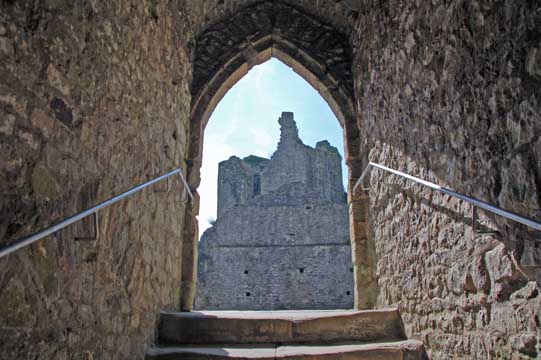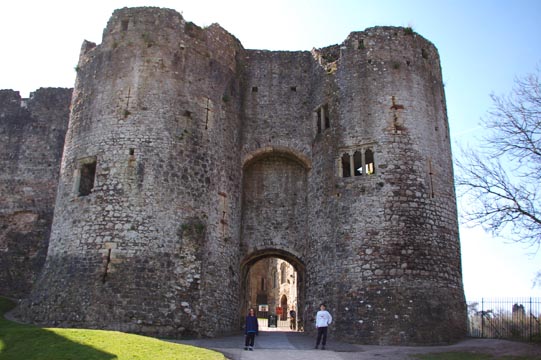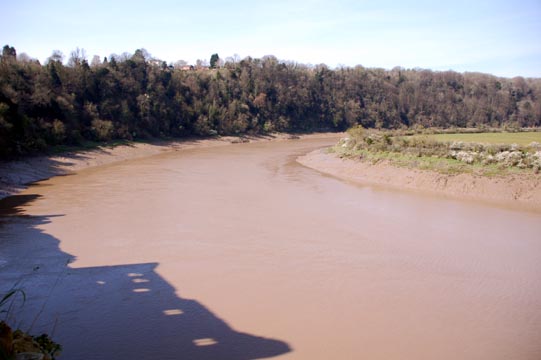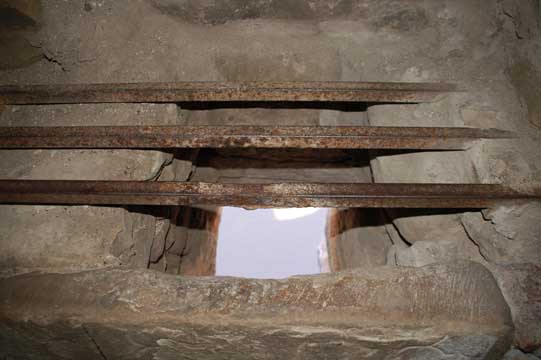The Fiddler of Dooney
By William Butler Yeats
When I play on my fiddle in Dooney,
Folk dance like a wave of the sea;
My cousin is priest in Kilvarnet,
My brother in Mocharabuiee.
I passed my brother and cousin:
They read in their books of prayer;
I read in my book of songs
I bought at the Sligo fair.
When we come at the end of time
To Peter sitting in state,
He will smile on the three old spirits,
But call me first through the gate;
For the good are always the merry,
Save by an evil chance,
And the merry love the fiddle,
And the merry love to dance:
And when the folk there spy me,
They will all come up to me,
With "Here is the fiddler of Dooney!"
And dance like a wave of the sea.
--------
"In heaven, Yeats proposes, joy trumps everything," writes Robert Pinsky in this week's Poet's Choice, which is mostly a discussion of a recent Washington Post Magazine experiment in which violinist Joshua Bell was invited to play his Stradivarius near a trash can at the L'Enfant Plaza Metro station, incognito in a t-shirt and baseball cap, where his performance of Bach's Partita No. 2 in D Minor netted him $32.17 and one recognition. "Plausible explanations for the...indifference include an insensitive population, a culture out of balance, the overwhelming power of context, and the elusive nature of beauty," states Pinsky (who might also have quoted the annoyed commentator who wrote, "the value of one individual to another lies not in the elitist cachet that select segments of our society self-servingly assign to individuals such as violinist Joshua Bell").
Pinksy prefers "a more optimistic possibility," which is that "people on their way to work automatically resist, and perhaps unconsciously recognize, the anarchic and disruptive power of beauty...did at least some of the commuters in that L'Enfant Plaza station sense and reject the seductive, amoral appeal of art? Would stopping to listen be too naughty, too irreverent a possibility to consider at all?" Yeats' poem suggests that idea to Pinsky.
Since older son leaves early Sunday morning for his week-long school trip to New England, including a visit to M.I.T. and many of the Boston highlights we visited three years ago (younger son is quite envious about the aquarium, which has three kinds of penguins), we did mostly utilitarian things Saturday, like getting haircuts for everyone, doing a bit of shopping and washing, drying, sorting and folding lots of laundry. Younger son had soccer early in the morning while older son was working at Hebrew school, and in the afternoon we went for a hike at Meadowside Nature Center which was surprisingly crowded, as we had not anticipated all the Earth Day-related activities that might be going on. So it was not all that eventful a day, though quite lovely out, with temperatures in the 70s and trees in bloom all around where we were walking.
Had a bit of a headache when I woke up and on a lark checked the ingredients on the supposedly organic yogurt I ate yesterday, and it's got high fructose corn syrup in it! And the "pure vanilla extract" my husband uses in cookies also has corn syrup in it. I've been aware for a long time that we get corn fed to us in products we don't even think about, but since I've been reading labels it's been astounding to me: even powdered malt extract, which I thought by definition was germinated barley, has corn in it. I'm going to have to read the ingredients on every single thing we eat regularly; I don't live close enough to either Trader Joe's or Whole Foods to do all our shopping there, even if we could afford it.


It was held by Royalists and besieged during the English Civil War, then used as a prison and allowed to decay, so that now it is a beautiful ruin with gorgeous views of the Wye from the paneless windows.

The views from the upper walls are fantastic.

Chepstow's Great Hall is the oldest surviving stone fortification in Britain.

The shadow of the castle with the view down the Wye.

Cleverly the castle toilets were positioned right over the river.
Finally watched the "young Denny Crane" episode of Boston Legal, which I had missed while we were in England. It's definitely one of Shatner's best performances on the series and the impression is even greater given that the episode uses clips of him playing a lawyer in an episode of Westinghouse Studio One called "The Defender" that someone at ABC pulled out of a vault -- he's stuck with horrible cliched lines and overly dramatic music and he's still compelling in that bad old lawyer drama. Really, except for poor Brad who spends most of the episode stuck in a ventilation shaft, it's a great episode for everyone:
The firm is held hostage by a man who believes Denny unfairly tricked a jury into letting his mother's murderer go free 50 years before; he wants a retrial and demands that the members of the firm, plus a couple of clients and Bethany, serve as jury, threatening to blow up the entire floor of the building if they don't obey. Things are further complicated for Denny by recalling (in the "Defender" flashbacks) that his own father felt Denny's client was guilty, but the man confesses that the reason he couldn't bring himself to testify is that he was correctly placed at the scene because he was visiting a male lover, something that couldn't be admitted on the stand in 1957 without consequences as dire as a murder conviction. Bethany insists that the "jury" should find him guilty anyway in the hope that they will all escape alive, but Paul and Denise insist on holding a fair "trial" and ultimately the defendant is found not guilty. The sobbing hostage-taker leaves the conference room with the intention of forcing police to shoot him until Denny persuades him that enough people have suffered over this long-unresolved murder.
Meanwhile Alan finds his prostitute neighbor under arrest along with a state senator, and antagonizes the judge into a contempt ruling that lands them all in jail together. It's not one of the show's better storylines except when Alan, who admits that he's no relationship expert himself, implores the senator to try to save his marriage when the senator's wife expresses her humiliation not that he cheated but that he got caught. He works out a plea agreement where both his neighbor and the senator agree to claim that no money changed hands so no crime was committed, then goes for a drink with Denny, saying his perspective on having a bad day has changed now that he knows what was going on at the firm.
Listening to Denny brag about how the hostage crisis stemmed from a case he tried with his father, Alan says unhappily that his own father was never proud of him and asks Denny if he can imagine what that must be like. Denny initially pretends that his father admired his law career, but ultimately admits that his father disowned him and asks Alan to come over that night, to which Alan, of course, agrees, saying that he is proud of Denny regardless. It's quite a moving drama (and they're playing Billy Joel's "And So It Goes"), though I'm sorry they reduced Brad to comic relief when his maybe-sorta-girlfriend who is pregnant with his child is one of the hostages...they owe him a decent storyline. I heard a rumor that he and Denise might be getting married in the season finale, which would make me very happy, and although I thought the pregnancy storyline was cracked to begin with, I saw in EW that Julie Bowen just had a baby, which explains a lot about why they did it!

No comments:
Post a Comment